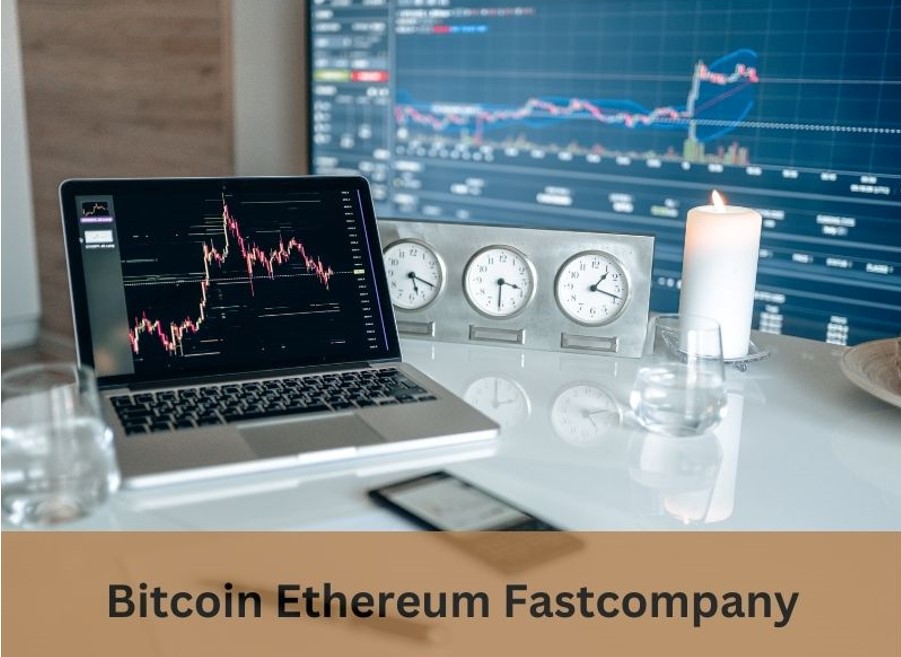Bitcoin and Ethereum are two of the most popular cryptocurrencies on the market. They are both decentralized payment systems that enable peer-to-peer transactions.
They also provide a platform for creating and building distributed applications and smart contracts. Both have different consensus mechanisms that help confirm transactions and add new blocks to the blockchain.
Bitcoin
For one, ETH (pronounced eye-tay) is the world’s second largest cryptocurrency by market cap. A lot of that is thanks to Ethereum’s smart contract savvy, and the company’s unabashed love of the blockchain aficionado. It’s also the home to the world’s largest dApp hub, and its own currency (the ERC20). A recent slew of major blockchain innovations has been a boon to all stakeholders, from developers to investors to consumers. As a matter of fact, the company is currently the best performing crypto exchange in the industry. As a result, the company is on track to become the world’s first crypto unicorn by the end of this year. It has also just landed a big name investor who is reportedly on the verge of a takeover.
Ethereum
Ethereum is a decentralized, open source and distributed computing platform that allows you to build smart contracts and deploy decentralized applications (dapps) on its network. It’s also one of the most programmable platforms, meaning you can use it to do almost anything.
The most obvious use of Ethereum is as a global payment system that lets people send money to each other without the need for banks or payment providers. It’s called decentralized finance (DeFi).
But there are many more ways to use it. For example, you can use it to create and store non-fungible tokens (NFTs), a type of digital asset that looks like something else but doesn’t have physical value. NFTs can be used to pay for things in the metaverse, including games and virtual worlds, as well as to trade assets and collect rewards.
Another important use is to allow people to create and run their own applications. This means that there’s no central authority managing the app, so you can have full control over it.
To do this, you need to use the Ethereum blockchain and its associated software, known as the Ethereum Virtual Machine (EVM). Once you have your contract on the EVM, every node on the Ethereum network will evaluate it to make sure that it is done according to the coding requirements.
It’s this evaluation process that makes Ethereum transactions so secure and reliable. They’re processed by thousands of nodes around the world, all of which are independently managed. This ensures that the Ethereum network is not centralized and does not get shut down by one company or group.
The nodes are also rewarded with Ether, the currency of the Ethereum network, for verifying transactions and confirming that they’re valid. These nodes are a critical part of the security and reliability of the network, and Ethereum’s community has worked hard to grow the number of nodes on the network.
You can use Ether to buy and sell other cryptocurrencies, and to send payments over the network. However, it’s worth noting that you might have to pay taxes when you sell or trade cryptocurrencies.
Algorand
Algorand is a blockchain platform designed by cryptography expert Silvio Micali to address three major problems plaguing the cryptocurrency ecosystem: scalability, speed, and security. Algorand’s technology solves these issues by using a proof-of-stake mechanism and a Byzantine agreement protocol to distribute rewards, disincentivize fraudulent activity, and create a single source of truth for validating transactions.
Unlike legacy cryptocurrencies like bitcoin ethereum fastcompany, Algorand runs on a pure-proof-of-stake consensus mechanism, which allows new blocks to be approved within seconds. This enables the network to process thousands of transactions per second while offering near-finality.
The Algorand platform also supports smart contracts, which are software applications that run on the blockchain and interact with other parties. These apps can be as simple or as complex as a user requires.
Algorand utilizes an automated virtual machine (AVM), which evaluates the logic in smart contracts on both relay and participation nodes, ensuring that they execute properly. The AVM uses a stack engine to assess the logic in the smart contract before deciding whether to execute it.
Users on the Algorand network can stake ALGO tokens to earn Algorand coins, which are used to pay for gas fees and computations performed by dApps on the network. These rewards are also rewarded to the network’s validators, which is a method that Algorand uses to encourage decentralization and to ensure that no single individual holds an unfair advantage over others on the platform.
This makes it possible for Algorand to achieve scalability, speed and security at a much lower cost than other platforms. This makes it an attractive choice for startups looking to launch their own dApps.
In addition, Algorand’s layer-2 tier can handle more complicated smart contracts and decentralized apps that don’t add traffic to the network. This allows the network to process thousands of transactions per second with near-finality, while also minimizing the amount of energy required by the platform.
Algorand’s blockchain uses a PoS consensus method that is more power-efficient than the PoW algorithm employed by legacy cryptocurrencies such as Bitcoin and Ethereum. This makes it an attractive option for users looking to avoid paying high transaction fees on a platform that requires expensive computing power.
Binance
Binance is one of the most popular cryptocurrencies exchanges in the world. It offers a wide variety of trading products, including futures and options trading. It also supports a range of fiat currencies and payment systems.
Binance provides a range of security measures to protect its customers’ accounts, including two-factor authentication and an emergency insurance fund called SAFU. The exchange also protects user data under SSL encryption. It also offers a variety of ways to deposit and withdraw funds, including credit cards and bank transfers.
The platform allows users to trade over 44 cryptocurrencies, including bitcoin ethereum fastcompany. It also supports a wide range of payment methods and is available in many languages.
To use the exchange, you must first create an account with Binance. You can do so by visiting the website and registering your details. You’ll be asked to provide a password and mobile number to secure your account. Once you’ve verified your identity, you can start trading.
You can deposit funds into your Binance account using the website’s web interface or app. The site accepts a number of deposit methods, including Neteller and Skrill. In addition, it accepts bank transfers and wire transfer payments.
Once you’ve deposited funds, you can transfer them to another user via the exchange’s P2P network. However, you’ll need to provide an address for each transaction. This can be a hassle for new users, so you may want to consider using a different exchange to make this process easier.
Moreover, Binance also offers a brokerage service that allows you to buy crypto with credit and debit cards. This service is a little more expensive than other similar services, but it’s worth considering because it gives you access to a wider range of coins and is easier for new traders to understand.
Binance has a reputation for security and it’s one of the few exchanges that have never been hacked. They also have AI-based security systems that prevent theft and target attacks.
The exchange is regulated by multiple countries, and it adheres to strict KYC regulations. In addition, it has a customer support team that can be reached 24/7 through live chat.
Also Read: Which Technologies Combine to Make Data a Critical Organizational Asset ?











